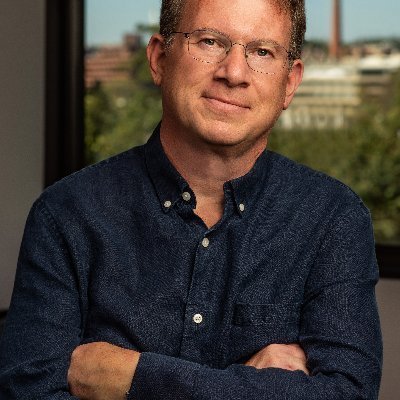An extraordinary glimpse into the fragility of power and the strength of restraint
Being the Accidental Witness: The Unlikely Beginning
In the era of encrypted communication, where every conversation floats through a sea of vulnerabilities, one story stands out not because of grand espionage, but because of a quiet accident. Jeffrey Goldberg, Editor-in-Chief of The Atlantic, experienced it firsthand one morning while making coffee.
A ping from Signal. A casual glance at his phone. A revelation that should never have occurred.
Listed alongside heavyweight names like JD Vance, Pete Hegseth, Marco Rubio, and Mike Waltz, was Goldberg himself. Somehow, he had been inserted into a secret Signal group chat discussing matters of war.
At first, he thought it was a prank. Until the messages began rolling in with chilling urgency.
“Coordinates are locked.”
“Need confirmation from CENTCOM before 0300.”
“Rubio, confirm ROEs have been updated.”
It was not theater. It was real.
Inside the Digital War Room
For hours, Goldberg silently observed. Names of Yemeni villages, payload details, strategic timings — the machinery of national security unfolding in real time. As a journalist who had spent years trying to pull back the curtains of power, he now found the curtains flung open before him.
He could have published an immediate world exclusive. The temptation was there. Yet he hesitated.
Because sometimes the greater story is not the revelation of secrets, but the restraint from exposing vulnerabilities that could cost lives.
Goldberg watched. He listened. He recorded privately. But he did not act recklessly.
The Breach That Was Not an Attack
Later, an internal investigation revealed the cause: a simple error. A junior staffer mistakenly added Goldberg to the chat group while multitasking across multiple devices.
It was not cyberterrorism. It was not hacking. It was not a betrayal from within. It was the most human of mistakes — a slip of the thumb in a moment of distraction.
And yet the consequences were terrifying. One civilian accidentally became a witness to operational planning for airstrikes, simply because someone mistyped.
If national security can be compromised by such mundane errors, what does it say about the fragility of even the most fortified systems?
The Silent Decision
The airstrikes proceeded on March 15, precisely as Goldberg had seen planned.
As the news broke internationally, Goldberg made his choice. He wrote about the event — but carefully. He did not reveal village names. He did not expose timestamps. He focused instead on the dangerous casualness, the frightening oversight.
His restraint was not born of fear, but of ethics. The role of journalism, he believed, was to illuminate without unnecessarily endangering lives.
This silent decision spoke volumes about journalistic responsibility in an age of clickbait and sensationalism.
Signal: The Fortress Amid Chaos
Amidst the chaos, one quiet truth emerged: Signal worked.
Even after the breach, it became clear that Signal’s architecture remained intact. No external hacker had exploited it. No eavesdropper had broken in. The app’s end-to-end encryption, open-source transparency, and minimal metadata policies had done their job.
Signal is built to protect against mass surveillance. It does not store messages on its servers. It has no advertising model. Its only mission is privacy.
That senior leaders trusted Signal was a backhanded compliment to its effectiveness. In a world filled with leaky apps and insecure networks, Signal remained a rare stronghold.
Ethical Crossroads
Jeffrey Goldberg’s dilemma stirred conversations across newsrooms and universities.
Was it ethical to withhold parts of the truth? Was it ethical to reveal any part at all?
Some argued that every detail should have been exposed to shame the reckless policymakers. Others said that restraint was the highest form of ethical journalism — revealing the systemic failure without endangering operational security.
Goldberg chose the latter. He understood that sometimes journalism must balance truth against consequence, outrage against responsibility.
In doing so, he reaffirmed that real journalism is not just about revelation. It is about discernment.
A Quiet Lesson for the Future
The “Accidental Witness Story” endures not because it was dramatic, but because it was quietly, deeply unsettling.
It reminded us that power is always vulnerable, not because of its enemies, but because of its practitioners. It showed that even the best encryption cannot protect against human frailty.
And it taught us that in the age of infinite leaks, infinite scandals, infinite rage, sometimes the most radical act is not the exposure of secrets, but the careful, ethical curation of truth.
Goldberg saw everything. And by choosing to do the right thing quietly, he managed to say everything that mattered.
FAQs
Q: Why is Signal considered one of the safest messaging apps?
Signal uses end-to-end encryption, open-source code, disappearing messages, and stores minimal metadata, making it highly resistant to surveillance and hacking.
Q: What ethical dilemmas did Jeffrey Goldberg face?
He had to choose between exposing national security lapses fully or revealing just enough to highlight the danger without causing further harm. He chose restraint over sensationalism.
Q: What does this story teach about information security?
That even the best technologies cannot fully shield against simple human errors, emphasizing the need for vigilance and responsible handling of sensitive data.
